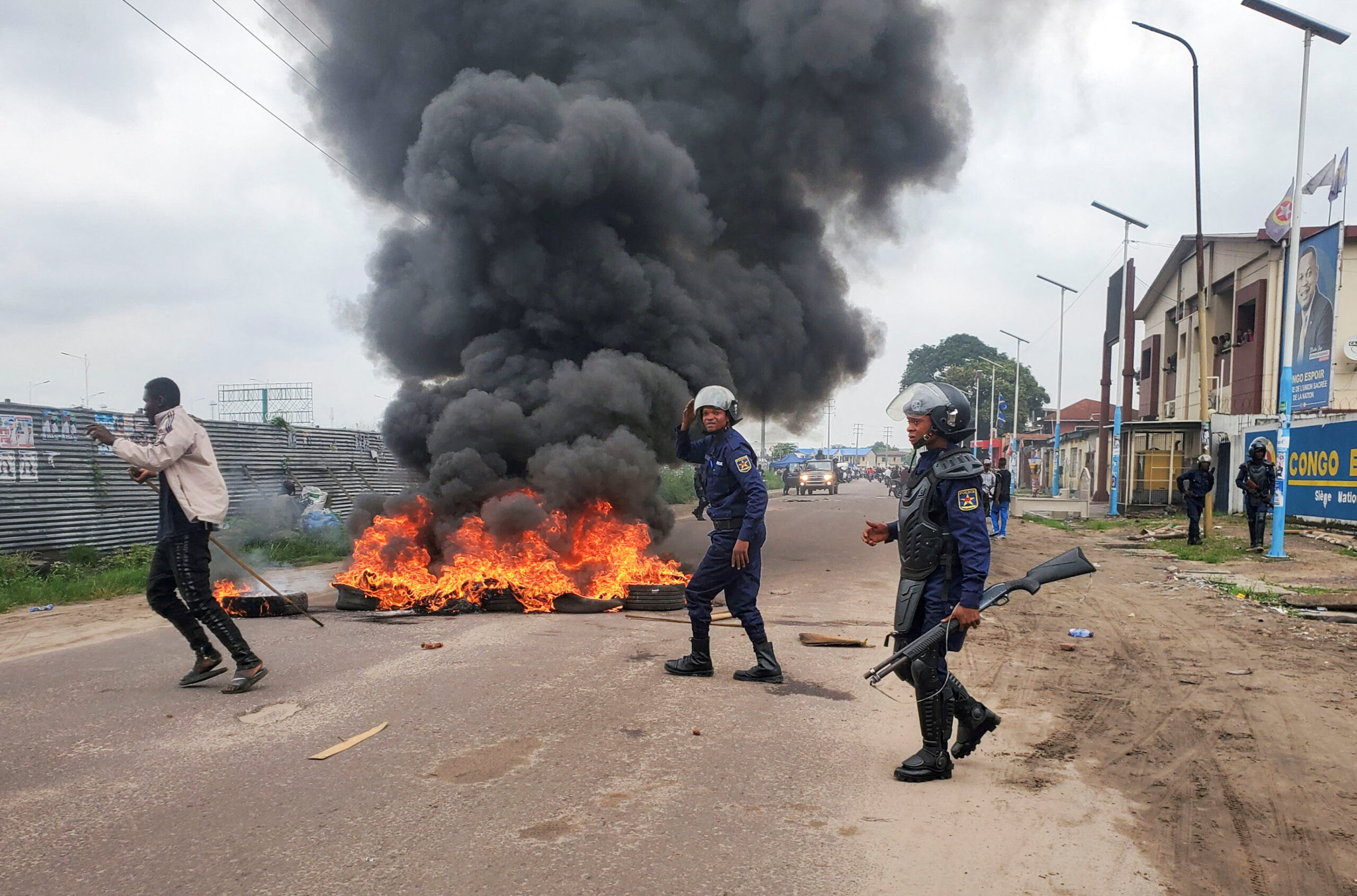
Authorities in the Democratic Republic of Congo’s capital, Kinshasa, effectively halted a planned protest on Wednesday, witnessed by media, as a demonstration opposing recent elections faced a ban in the fragile Central African state.
Following a contentious vote last week, marred by extensive delays and administrative disarray, key opposition figures in the resource-rich yet economically deprived DRC had called for the protest, rejecting the election results.
Peter Kazadi, the Congolese interior minister, declared on Tuesday the government’s prohibition of the demonstration, citing its potential to disrupt the electoral process.
However, despite the ban, the opposition persisted in urging its supporters to assemble near Kinshasa’s national assembly, intending to march toward the country’s electoral commission headquarters.
In the vicinity, journalists observed a heavy presence of riot police early Wednesday. These officers deployed tear gas canisters when confronted by supporters of opposition figure Martin Fayulu gathered outside his party’s headquarters. Concurrently, nearby demonstrators ignited burning tires in protest.
Government spokesperson Patrick Muyaya took to social media, advising the opposition to await the release of provisional vote results and directing grievances about the electoral process to the Constitutional Court.
December 20 saw approximately 44 million registered voters participating in concurrent elections to elect a president, national and regional lawmakers, and municipal councillors. Yet, logistical challenges plagued the electoral commission, leading to substantial delays in delivering voting materials across the vast expanse of the country—a landmass comparable to continental Western Europe—resulting in disenfranchisement for some.
To address these issues, voting was officially extended by a day, continuing until Christmas Day in remote areas.
Amidst claims of widespread disorder and irregularities by the opposition, the archbishop of Kinshasa characterized the election as a “gigantic organized mess.”
The Democratic Republic of Congo frequently experiences election-related tensions due to its history of authoritarian governance and violent regime changes.
Initial figures disclosed by the electoral commission indicate incumbent President Felix Tshisekedi significantly leading, having secured 79 percent of the approximately six million ballots counted to date.
Tshisekedi, aged 60, assumed office in 2019 following the country’s inaugural peaceful transition of power and is seeking a second five-year term.
Moise Katumbi, another candidate and former governor of the southeastern Katanga region, has garnered approximately 14 percent of the counted votes. Trailing behind is Fayulu, a former oil executive contesting the legitimacy of the 2018 election that brought the incumbent to power, receiving four percent of the counted votes.
